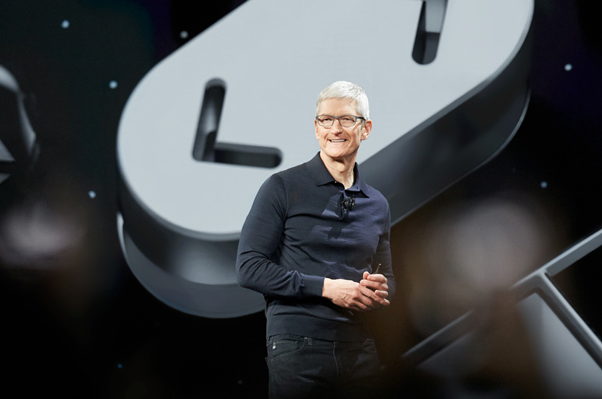 APPS
APPS
 APPS
APPS
 APPS
APPS
Apple Inc. has forged a $600 million deal with partner Dialog Semiconductor PLC that will give it more control over the iPhone supply chain, as well as boost internal chip development efforts.
The agreement, which was announced today, builds on over a decade of collaboration between the companies. U.K.-based Dialog has supplied power management chips to Apple since the days of the first iPhone and generates about three-quarters of its annual revenues from the relationship.
Today’s deal will see Apple take over this part of the firm’s operations. It will spend $300 million to license intellectual property related to Dialog’s power management chips, as well as hire more than 300 engineers who have been involved in developing the technology. The workers are spread out over four facilities in the U.K., Italy and Germany that will merge into Apple’s existing network of semiconductor design centers.
The other half of the $600 million transaction is set to go toward new chip orders. Apple is contracting Dialog to supply it with integrated circuits relating to power management, audio, charging and certain other device functions over the next three years. Dialog said that the arrangement will reduce the share of its total revenues accounted for by Apple to as little as 35 percent in 2022.
That’s a major win for the British company, which has come under pressure from investors worried about its dependence on the iPhone maker. Dialog said that it will use the money from the acquisition to “sharpen” its focus in other areas including the automotive, storage and “internet of things” markets. Shareholders evidently see it as a step in the right direction: Dialog’s stock closed up nearly 27 percent today on the Frankfurt Stock Exchange.
Apple, in turn, gains a valuable addition to its chip development operations. Acquiring Dialog’s power management assets will not only give the iPhone maker more control over a vital element of the iPhone and other products but also boost its broader semiconductor plans.
Apple is expanding internal chip design efforts in a bid to become less reliant on outside suppliers. The company has based the latest iPhone models on homegrown processor called the A12 and, according an August leak, plans to do something similar with Macs in 2020.
Patrick Moorhead, president and principal analyst at Moor Insights & Strategy, told SiliconANGLE that it’s clear Apple felt it needed more help on power management in particular. But he noted that it’s part of a broader effort to cement key sources of silicon technology, no surprise given the longtime operations focus of Apple Chief Executive Tim Cook (pictured).
“As I have predicted, Apple will not stop developing its own silicon until it can offer the entire solution,” he said. “This deal is yet another milestone on that path.”
The iPhone maker is beefing up its hardware design capabilities in other areas as well. Apple recently confirmed reports that it had acquired Akonia Holographics LLC, a startup focused on developing lens for augmented reality headsets. And last November, it picked up a firm called InVisage Technologies Inc. that developed miniaturized image sensors.
With reporting from Robert Hof
Support our mission to keep content open and free by engaging with theCUBE community. Join theCUBE’s Alumni Trust Network, where technology leaders connect, share intelligence and create opportunities.
Founded by tech visionaries John Furrier and Dave Vellante, SiliconANGLE Media has built a dynamic ecosystem of industry-leading digital media brands that reach 15+ million elite tech professionals. Our new proprietary theCUBE AI Video Cloud is breaking ground in audience interaction, leveraging theCUBEai.com neural network to help technology companies make data-driven decisions and stay at the forefront of industry conversations.